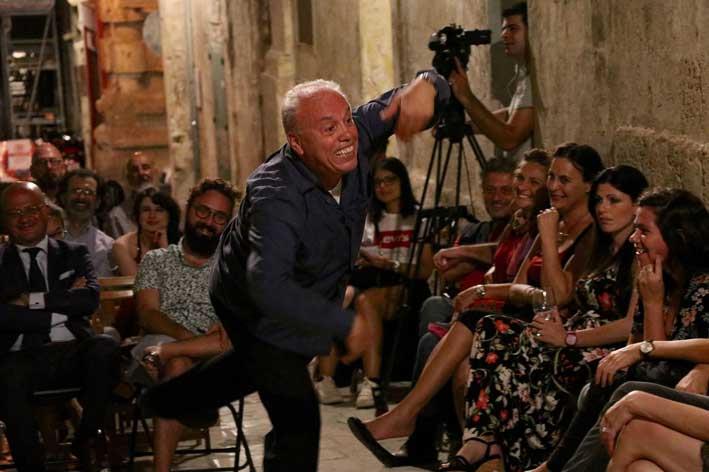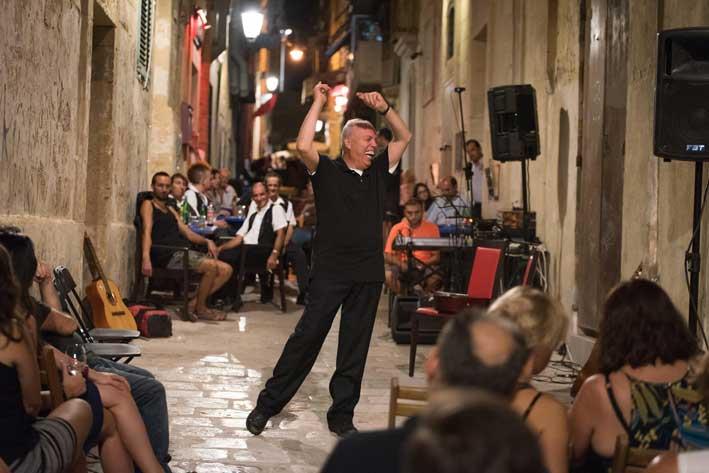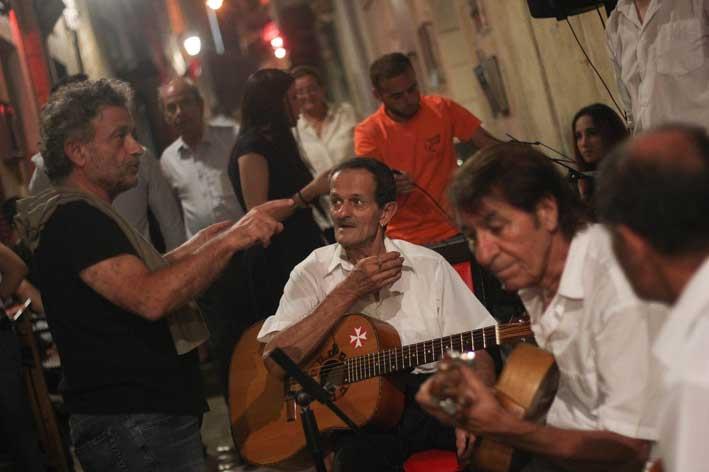It is known that those who write history make history, meaning that not all histories are necessarily true, but, more significantly, neither are they complete. The majority of historical narratives centre around major happenings and events, rulers and tyrants, or tell us about those who in one way or another pushed history in a consequential direction. In art history we learn of wealthy patrons, intellectuals, virtuosi and innovators.
Needless to say, the establishment has maintained a safe distance from the lower social classes throughout history, redeeming them of their less fortunate lives by taking the reigns of memory and establishing doctrines, traditions, correct standards of social and political behaviour, and shaping public knowledge. History has taught us that those who attempt to disrupt the moral code or challenge its authority are duly silenced, to state it mildly.

Last week, the translator and interpreter of Dario Fo's works, Mario Pirovano, came to Malta to perform Mistero Buffo and Johan Padan and the Discovery of the Americas in the narrow passage of Strait Street. For two of the nights, Pirovano was accompanied by a group of Maltese għannejja and musicians, linking the popular angle of the plays with Maltese folk music. The three-day event was organised by the Strada Stretta Concept (under the auspices of the Valletta 2018 Foundation) and was the culmination of an ongoing project led by artistic director Dr. Giuseppe Schembri Bonaci. For around 30 years, possibly more, Schembri Bonaci had tried to bring Fo over to Malta to stage his plays for a Maltese audience. A television production of Mistero Buffo was inches away from being realised but was cancelled (or 'put on hold' as announced officially) by PBS at the eleventh hour. Fo passed away last October and never did manage to step foot on Maltese territory.
I managed to spend some time with Pirovano, discussing Fo's works and his story, as well as that of his life-long companion Franca Rame. Their lives were filled with cacophony from morning till night; the theatre never ended, the laughter resounded, and the couple worked industriously to educate themselves and their students.

Fo's working method would have been terribly exhausting to most. He was relentless, and was driven by the compulsion to know and discover as much as he could. Nothing was taken for granted, and he believed it to be every individual's responsibility to uncover the truth and question the teachings that were passed on to us from a young age. A month before his death, Fo was working on his latest production, Darwin, a story about the origins of man. He wanted to find out why people were still so ignorant in spite of evolutionary progress. When he entered the hospital, Pirovano and others had to visit Fo daily to read him the newspaper and keep him up to date with global ongoings. The theatre was not work for Fo, it had a spiritual purposes that guided him to search for and experiment with truth and the limits of knowledge.
History, he knew, did not belong to the lower classes. Its upper case 'H', as termed by author Milan Kundera, intentionally denoted its purpose to serve the 'grand' side of history. What about the common people who lived quotidian and historically-unworthy lives? Did they not have stories and perspectives of their own? Fo's repertoire is about the inverse of history, seen from the eyes of those who were ignored, and based on intensive research. Schembri Bonaci absorbed these lessons when working and studying under Fo in Milan and has laboured to pass them onto his students here in Malta.
Fo would represent these stories as commedia dell'arte performances, speaking the universal language of humour and bringing joy to all. His plays have been staged all over the world and, despite his constant reference to Christian and Western knowledge, no cultural differences have acted as barriers for his audiences.

History itself is unpredictable and dynamic. Just as Pirovano was performing a rendition of stories from the Mistero Buffo collection, the Italian President Sergio Mattarella was on the parallel main street for a state visit. Republic Street has always been the nucleus of official political events; the arterial road of Valletta. Strait Street's counterculture and popular entertainment would come alive day in, day out whilst only a few metres away from the 'seat' of propriety.
The past is a living force, even if it can only be accessed through dusty documents and illegible text. Fo's teachings and lifelong work are testimony to the wonders of curiosity.